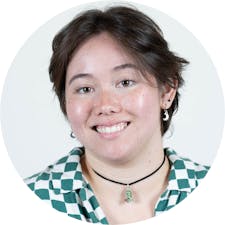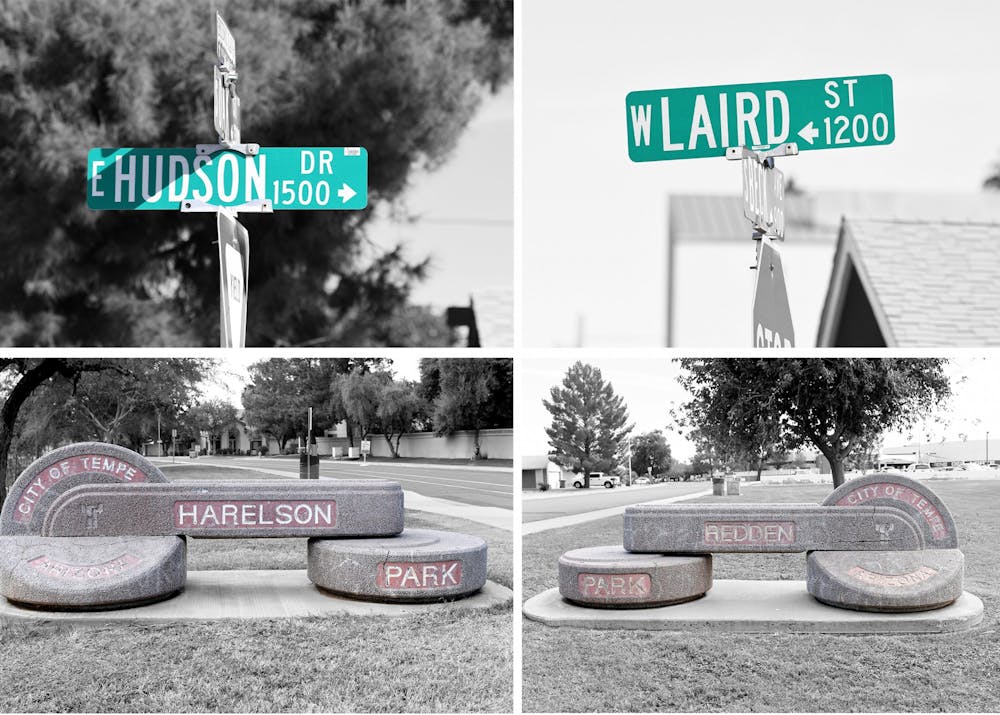The city of Tempe is now in the process of changing the names of several streets, parks and schools named after community leaders who were members of a Tempe chapter of the Ku Klux Klan during the 1920s.
During its work study session Thursday, Tempe City Council said it would reevaluate the names of West and East Laird Streets, Hudson Lane, Hudson Drive, Hudson Park, Harelson Park, Redden Park, Laird School, Hudson Elementary School and Gililland Middle School.
Members of Tempe City Council, including Mayor Corey Woods, heard from community members during the session and after public comment, announced support for the renaming process.
"It is time to take a comprehensive look at who we are and who we want to be moving forward," Woods said during the session. "It's long past time to start doing even deeper dives and really exploring that history, and making sure that we're telling the story of the city, and of all cultures frankly, accurately."
Tempe City Manager Andrew Ching said an email sent by a resident last year prompted the city to investigate the names. Research was conducted by Tempe History Museum staff using Klan records held by the Arizona Historical Society and the McClintock Papers held by the Phoenix Public Library. The documents are available for the public to examine, said Rebekah Tabah-Percival, the vice president of the Arizona Historical Society's Library, Archives and Collections.
The KKK is a white supremacist hate group that has historically used terror tactics to discriminate against African Americans, Jews and other marginalized groups across the United States.
According to research submitted to the council, the Tempe chapter was called Butte Klan No. 3 and does not appear to have existed past the 1920s. While it was active, mayors, city council members, school board members and others in positions of power in Tempe were part of the KKK.
Tempe city policy says the council "reserves the right to re-name any City facility previously named, if it is determined that it is in the best interest of the community."
The city of Tempe said it plans to create a committee that will eventually recommend new names. Ching, who will be in charge of choosing committee members, said he will include representatives from multiple city committees in addition to school districts.
"We want to be inclusive in putting together a board," Ching said. "We want to make sure all members of the community have an opportunity to weigh in on this issue."
ASU organizations, including Students for Socialism ASU, MECHA de ASU, ASU Young Democratic Socialists of America and Students for Justice in Palestine at ASU, attended the session to share support for the renaming process.
Pedro Gomez, co-chair for both MECHA de ASU and Students for Socialism and a sophomore studying Spanish and sociology, said he has experienced multiple instances of racism and discrimination while living in Tempe.
"This looming fear of feeling and being discriminated is something that many people of color, many non-white people like myself, have to feel," Gomez said at the session.
Several people including Nora, the president of Students for Justice in Palestine at ASU and a senior studying global studies and political science, shared concerns about the representation of communities of color in the renaming process.
"I think that not only is changing the names of these things important, but the prioritization for these name changes should be given to Black and Indigenous voices within the Tempe community," said Nora, whose last name has been omitted because she fears online harassment.
Descendants of community members the documents say were in the KKK opposed the renaming process for the sake of preserving their family legacy.
A relative who identified themselves as a great-granddaughter of Harvey Harelson, said renaming Harelson Park would disregard her family's contributions to the community. Harvey was a Tempe city council member from 1924 to 1928, founded Harelson Insurance and was allegedly part of the KKK.
"The name change of Harelson Park affects more than just the name of the park," she said during the session. "This is about generations of Harelsons doing their part for the city of Tempe."
Councilman Joel Navarro said the council is "responsible" for addressing questions and concerns of those directly impacted by the renaming process, including those who will need to officially change their address.
Some residents said renaming multiple public spaces would cost too much money. Councilwoman Lauren Kuby said the spending would be worth it.
"People say it's a waste of money," Kuby said during the session. "I can't think of a better expenditure of money, because it's the right thing to do."
Marlon Bailey, an associate professor of women and gender studies who researches African American studies, said he supports renaming but wants to see more policy-focused action in addressing racial discrimination.
"ASU, the city of Tempe, the state of Arizona has to put some material conditional changes, substantive material conditional changes, and has to grapple with its own legacy and current racism and white supremacy in its structures and the decisions that it makes," Bailey said.
Reach the reporter at awaiss@asu.edu and follow @WaissAlexis on Twitter.
Like The State Press on Facebook and follow @statepress on Twitter.
Continue supporting student journalism and donate to The State Press today.

Alexis Waiss is an assignment editor and senior reporter, covering breaking news and writing long-form stories. Alexis worked on SP's politics desk for a year, where she reported on the Legislature, higher education policy, student government, the city of Tempe and stories highlighting social justice. She previously worked as a fellow for the Asian American Journalist Association's VOICES program.




